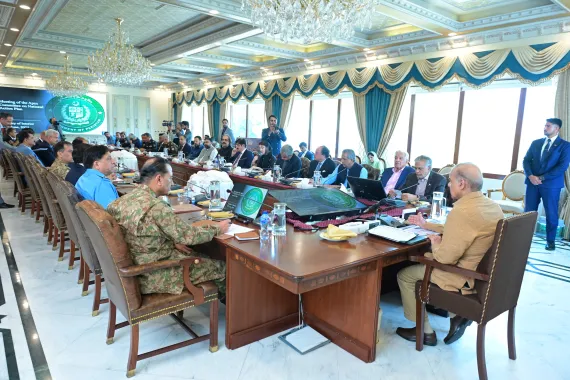Can the recent military operation in Pakistan, “Azm-e-Istehkam,” stop armed attacks?

Islamabad, Pakistan – Pakistan’s top leadership has approved the launch of a new military operation aimed at quelling a surge in violence.
Called Azm-e-Istehkam, meaning Resolve for Stability in Urdu, the operation was announced after Prime Minister Shehbaz Sharif led a review of the country’s “counterterrorism” operations over the weekend, especially the National Action Plan adopted in the aftermath of the December 2014 attack on Peshawar’s Army Public School. More than 140 people, predominantly students, were killed in the attack, which was claimed by the Pakistan Taliban, known by the acronym TTP.
The new military plan is expected to focus on domestic security threats and armed fighters crossing over from Afghanistan, amid mounting tensions between Islamabad and the Taliban rulers in Kabul. A statement issued by Sharif’s office on June 22 referred to plans to “intensify” efforts to curtail “terrorists” through regional cooperation with Pakistan’s neighbours.
“The campaign will be complemented by socioeconomic measures aimed at addressing genuine concerns of the people and creating an environment that discourages extremist tendencies,” the statement added.
Yet the new campaign is only the latest in a series of military operations that Pakistan has launched with the intent of crushing armed violence, and its timing has led to questions over the trigger for the initiative — and what it might accomplish. Pakistan had also announced a military operation in April 2023, during Sharif’s previous tenure as prime minister, but an official military campaign never commenced.
Afghan tensions
While the launch date of Operation Azm-e-Istehkam has not been formally declared, the announcement comes at a time when the country has seen a dramatic surge in violent incidents over the last 18 months. Most of these attacks are claimed by TTP, which is ideologically aligned with the Taliban in Afghanistan.
The TTP unilaterally ended a ceasefire in November 2022 and Pakistan has repeatedly accused Kabul of harbouring them, a charge the Taliban government, which came to power in August 2021, has consistently rejected.
Now those already strained relations could be tested further if Pakistan’s military operation extends into Afghanistan, as analysts predict, in part based on recent events.
“In March, Pakistan even conducted cross-border strikes in Afghanistan against suspected Pakistani Taliban hideouts, which were publicly confirmed by the foreign office,” Ihsanullah Tipu, an Islamabad-based security analyst, pointed out in an interview with Al Jazeera.
Tipu, who also directs The Khorasan Diary, a news and research portal analysing security issues in the region, added that Islamabad views the use of active military force — known as kinetic action in army jargon — as the most effective approach to counter armed violence.






